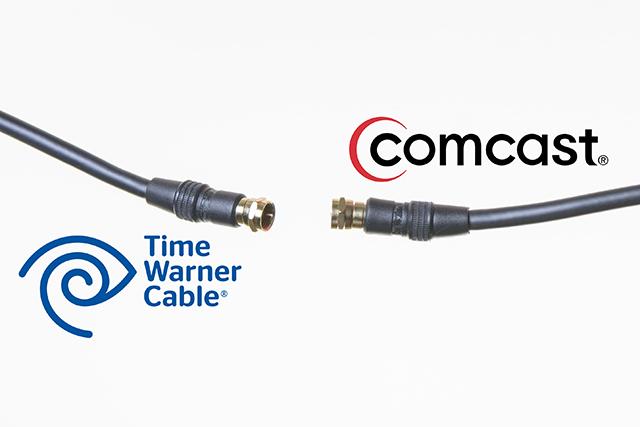
John Joyner
PHOTO ILLUSTRATION Comcast is planning a $45 million merger with Time Warner Cable, which would put 30 million subscribers under the one company. Photo illustration by John Joyner.
The proposed merger between Comcast and Time Warner Cable has received a lot of critical attention from both customers of both companies as it could potentially alter prices and quality, but not all outcomes may be detrimental to Raleigh residents, according to Michael Walden, William Neal Reynolds Distinguished Professor & Extension Economist at N.C. State.
The merger would make Comcast the largest provider of cable and internet services in the East Coast, according to an article in The New York Times.
Customers are concerned with the Comcast-Time Warner merger due to fears of limited competition that could potentially lead to higher prices, Walden said.
“If there are no viable competitors, there’s not much motivation to do things better and to innovate,” Walden said.
However, Walden said he has heard that in comparison to Time Warner, Comcast has better technology, faster speeds and more innovation techniques, and if that’s the case, customers from both companies will benefit.
“TWC customers can begin looking forward to a better product and Comcast customers will benefit from Comcast’s growth,” Walden said.
Dana Moeller, a senior in biological sciences, said that as long as there isn’t an increase in cost or a decrease in service, she isn’t concerned with the deal because she isn’t familiar with Comcast’s services.
Moeller said she has experienced several issues with Time Warner Cable’s internet and cable, but that overall she is content with the service she is receiving as issues have always been fixed within two days.
Moeller said she hopes customer service in the Raleigh-area will not be affected by the merger.
“I have a very high opinion of the local [customer service staff,]” Moeller said, “but I have a very low opinion on those that are not so local because they have been rude and hung up on me.”
Walden said he believed Comcast chose Time Warner Cable because it’s a successful company with different demographics from its own, leading to a wider customer base.
“They are growing their footprint rather than rearranging their footprint,” Walden said. “It’s not uncommon in the industry.”
Walden said this process is very similar to the one seen in the Duke Energy and Progress Energy merger. In that instance, both companies also had control over different geographic areas.
Currently, the direction of the telecommunication industry is in a state of flux and in this environment, bigger is better because more resources are available to larger companies, and these larger companies are more shielded from changes in the market, according to Walden.
Walden said he believes Comcast’s purpose in offering Time Warner $45 billion to merge was to become a larger provider of internet and cable. Time Warner dominates sales in the Southeastern U.S. and the purchase makes Comcast a larger company with bigger profits and more control.
“The big motivation Comcast sees is the possibility for more profits and a greater ability to deal with uncertainties,” Walden said.
Walden said the process will have to undergo a federal review due to the large size of the companies.
In the past, the U.S. Department of Justice has prevented companies from merging or has chosen to set conditions to monitor mergers. The Comcast-Time Warner decision will probably be made by next year, according to Walden.